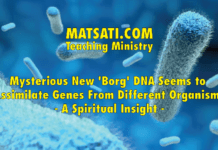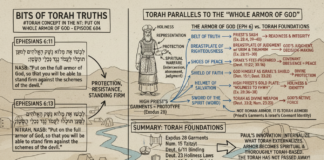Some of the things we are not told in the excitement of colonizing Mars is about the number of problems associated with living on Mars! For example, Perchlorate (ClO4–) is a major salt component found in the soil on the surface of Mars. Although this toxic substance has industrial uses, it can cause serious issues with the thyroid gland at exceedingly small doses. On Mars, perchlorates make up 0.5 to 1 percent of the soil. Note that this could also be a resource as an important source of oxygen, but this is also a critical chemical hazard to astronauts as it is poisonous for humans. Perchlorates are reactive chemicals first detected in the arctic Martian soil by NASA’s Phoenix lander that landed on Mars over thirteen years ago in May 2008. Note that orbital measurements taken by the Mars Odyssey spacecraft show that chlorine is globally distributed. Anybody who is saying they want to go live on the planet Mars had better think about the interaction of perchlorate with the human body because very small amounts are considered toxic, therefore one needs to have a plan to deal with this surface poison. This was the point of a recent peer reviewed research paper published in the journal JACS. [1]
References
- Changxu Ren, Peng Yang, Jiaonan Sun, Eric Y. Bi, Jinyu Gao, Jacob Palmer, Mengqiang Zhu, Yiying Wu and Jinyong Liu, “A Bioinspired Molybdenum Catalyst for Aqueous Perchlorate Reduction,” J. Am. Chem. Soc. 2021, 143, 21, 7891–7896 https://pubs.acs.org/doi/10.1021/jacs.1c00595
The authors of the research paper [1] recognize these issues with the pervasive and harmful inert anion on the surface of Mars. Note that any soil being used for growing food would need to be cleansed, and any water that may be found on Mars would also need to be purified. The current technologies that exist for ClO4– (perchlorate) reduction involve harsh reaction conditions or multicomponent enzymatic processes. Perchlorate is a strong oxidizer and is also used in solid rocket fuel, fireworks, munitions, airbag initiators for cars, matches, and signal flares. We know a lot about perchlorate as it is also a byproduct in some disinfectants and herbicides. According to the research paper, the researchers noticed that anaerobic microbes use molybdenum in their enzymatic reactions to reduce the perchlorate to obtain energy in low oxygen environments. The researchers are trying to eliminate the enzyme requirement for reduction, to develop a catalytic decomposition approach, in order to enhance the reaction kinetics, the speed of perchlorate reduction and to also simplify the approach. The scientists manufactured heterogeneous (L)Mo–Pd/C catalyst directly prepared from Na2MoO4, a bidentate nitrogen ligand (L), and Pd/C to reduce aqueous ClO4– into Cl– with 1 atm of H2 at room temperature. Using the basic principles of chemistry, researchers mixed a common fertilizer called sodium molybdate, and a common organic ligand called bipyridine to bind the molybdenum, and a common hydrogen-activating catalyst called palladium on carbon, they produced a powerful catalyst that quickly and efficiently breaks down the perchlorate in water using hydrogen gas at room temperature with no combustion involved. The paper concludes saying this catalyst is a highly active and robust heterogeneous (L)MoOx–Pd/C catalyst for aqueous ClO4– reduction. The catalytic reaction at 20 °C with 1 atm of H2 and fully reduced a wide concentration range (10 μM to 0.1 M) of ClO4– into Cl–. The researchers report that this catalyst is more active than any other chemical catalyst manufactured to date and reduces more than 99.99% of the perchlorate into chloride regardless of the initial concentration. The idea then is to take the Martian soil, wash the soil with water to leach out the perchlorate, and then remove the perchlorate from the water purifying both the soil and the water.
The Spiritual Insights that we receive from this type of research is related to the scientific research from the sense of the dangers of the Martian surface, it’s toxic compounds which can have a significant impact on human biology. This is an unavoidable hazard for anyone who chooses to make a life on the surface of Mars. There needs to be a plan for dealing with this problem, and a great amount of effort in research and development have taken place to develop catalytic processes to make perchlorate reduction easy and very efficient. These things remind us of what is happening here on earth, and around the world, in relation to sin. The Scriptures reveal to us how God had a plan for mankind to overcome this toxic phenomenon when we read Tehillim / Psalms 32:1 and 111:10.
ספר תהלים פרק לב
א אַ֥שְֽׁרֵי אָדָ֗ם לֹ֤א יַחְשֹׁ֬ב יְהוָ֣ה ל֣וֹ עָוֺ֑ן וְאֵ֖ין בְּרוּח֣וֹ רְמִיָּֽה׃
Tehillim / Psalms 32:1
32:1 How blessed is he whose transgression is forgiven, Whose sin is covered! (NASB)
ספר להלים פרק קיא
י רֵ֘אשִׁ֤ית חָכְמָ֨ה ׀ יִרְאַ֬ת יְהוָ֗ה שֵׂ֣כֶל ט֖וֹב לְכָל־עֹשֵׂיהֶ֑ם תְּ֝הִלָּת֗וֹ עֹמֶ֥דֶת לָעַֽד׃
Tehillim / Psalm 111:10
111:10 The fear of the LORD is the beginning of wisdom; All those who follow His commandments have a good understanding; His praise endures forever. (NASB)
Tehillim / Psalms 32:1 states אַ֥שְֽׁרֵי אָדָ֗ם לֹ֤א יַחְשֹׁ֬ב יְהוָ֣ה ל֣וֹ עָוֺ֑ן “blessed is the man God does not regard his sin.” Here sin is written using the word עָוֺ֑ן (iniquity). In the Hebrew Bible, there are quite a few words for “sin.” The Hebrew word most often translated for sin in our English Bibles is the word (חֲטָאָה) (khata’ah) which means “missing the mark,” which provides us with the idea of shooting a target and missing the mark. חֲטָאָה is an error, a mistake just like in the case of missing the target. In the Psalm, the definition of iniquity means “gross injustice, wickedness, or a wicked act.” This conveys a more serious underlying issue. Similarly as with the word פֶּשַׁע, this word conveys a “willful transgression done to spite God.” This word suggests defiance, rebellion, and the casting off of God’s authority. We note how David opens the Psalm with the idea that God does not regard iniquity. Iniquity is a willful twisting, distorting, or perversion of the will of God for selfish ends. This is why David wrote the second half of this verse in the way that he did saying, וְאֵ֖ין בְּרוּח֣וֹ רְמִיָּֽה “there is no treachery / deceit in his spirit.” The one whose sins are forgiven, whose sins are not regarded, is the one who has an upright heart (Tehillim / Psalms 15:2, 24:4). Sin functions as a toxic substance which is either ingested voluntarily or through exposure from the environment. This is how sin works and is unavoidable in this world from the sense of exposure. The scientific research on perchlorate reduction reminds us of the limits of perchlorate exposure as having a very significant effect upon our lives that is prevalent everywhere in the Martian environment. The parallel is to our exposure to sin, all one has to do is turn on the television, or walk down the street depending upon where one lives (i.e. Las Angeles California). The Lord God Almighty, the Creator of all things, He knew what was going to happen after he had created Adam and Eve, their choices would lead to the effect of sin upon all the world, all of creation. So the Lord had a plan in place to deal with it! This is the concept of forgiveness, mercy, and grace.
Tehillim / Psalms 111:10 states, רֵ֘אשִׁ֤ית חָכְמָ֨ה ׀ יִרְאַ֬ת יְהוָ֗ה שֵׂ֣כֶל ט֖וֹב לְכָל־עֹשֵׂיהֶ֑ם תְּ֝הִלָּת֗וֹ עֹמֶ֥דֶת לָעַֽד “the beginning of wisdom is the fear of HaShem, a good understanding to all who do them, His praise stands evermore.” This verse opens with רֵ֘אשִׁ֤ית חָכְמָ֨ה “the first / beginning of wisdom” indicating the foundational principle of wisdom is to יִרְאַ֬ת יְהוָ֗ה “fear the Lord.” It is interesting while comparing the Hebrew bible to our English translations, we note how the NASB speaks of “All those who follow His commandments have a good understanding” however the Hebrew text does not use the word mitzvot (commandments) saying, שֵׂ֣כֶל ט֖וֹב לְכָל־עֹשֵׂיהֶ֑ם “good understanding is to all those who do them.” The “doing them” עֹשֵׂיהֶ֑ם is a reference to God’s commands in the Torah, the translators of the English bibles understood this context and the mind of the Psalmist. The idea is that the one who walks in God’s ways is wise! This sort of person does not cast off the authority of God’s Word on his or her life, meaning that such a person is choosing to go beyond the limits of God’s Torah. The one who chooses to walk in God’s Holy and Righteous ways does not twist, distort, or pervert the will of God for selfish ends. We note how Tehillim / Psalms 32:1 states לֹ֤א יַחְשֹׁ֬ב יְהוָ֣ה ל֣וֹ עָוֺ֑ן “God does not regard his iniquity” which is interpreted as his iniquity being “forgiven.” This means that the one who is forgiven is joyful in having his rebellion against the Lord forgiven.
As we noted earlier, sinning is missing the mark, as one makes a failure of reason in his decision making process which leads to the forfeiture of the image of God in his or her life. The reason this is so is that we were created in the image of God (Bereshit / Genesis 1:27), and as having been given this attribute of the ability to reason, to make ethical and moral decisions. The Baal Hachinuch said that the sacrificial system was intended to teach the need for teshuvah (repentance). This is direct correlation to our choices and to what David writes in the Psalm saying, וְאֵ֖ין בְּרוּח֣וֹ רְמִיָּֽה “there is no treachery / deceit in his spirit.” The sacrificial system was intended to reveal the end result of making choices in life that are done in twisting, distorting, perversion of God’s Holy Word for selfish desire. The idea is that when one witnesses the death and destruction of a life (the animal) this is intended to warn us against sin and its destructive principle. This principle of our freedom to make decisions in life, to choose to obey God at His word which is the wisdom spoken of in Tehillim / Psalms 111:10, or to disobey God. Nachmanides argued that the sacrifices were offered as a response to sin. He believed that every sin had three parts, (i) the sinful thoughts, (ii) the sinful words, and (iii) the sinful deeds. Each of these correspond to the purpose of the sacrifice, the laying on of the hands (our words, confession), the slaughter of the animal (to our thoughts), and the pouring off the blood on the altar (to our deeds). We note how by participating in these things causes one to recognize the nature of his or her offense and to his responsibility before God! It is then by the merit of the animal giving up his life upon the altar that we are forgiven. It is for these reasons that sin requires the shedding of blood because of the offences committed against the God who is in heaven. The Torah is clear that it is by blood (דָּם) whereby we receive the forgiveness of sin (atonement, כַּפָּרָה) before God. Notice God’s salvation and redemption processes according to the Torah. The blood was used on the mezuzah (door posts) in order to be made free from the judgement that was to come upon the wicked land of Egypt. The blood was used to ratify the covenant at the mountain of Sinai (Shemot / Exodus 24:8). The Mishkhan (Tabernacle) itself, and all of its parts, the altar, laver, ark of the covenant, shovels, etc were all separated for service through the sprinkling of blood. Even the priests themselves were consecrated for service through the sprinkling of blood. (Shemot / Exodus 29:20-21, Vayikra / Leviticus 4:16, Hebrews 3:1, 9:21) The Torah speaks explicitly in Vayikra / Leviticus 17:11 saying, “for the life of the flesh is in the blood (כִּי נֶפֶשׁ הַבָּשָׂר בַּדָּם), and I have given it for you on the altar to atone (לְכַפֵּר) for your souls, for it is the blood that makes atonement by the life (כִּי־הַדָּם הוּא בַּנֶּפֶשׁ יְכַפֵּר).” This is why blood is correlated to the holiness and sanctity of life, and why sin requires sacrificial death.
We see in the Apostolic Writings how these things are interpreted. Paul wrote that the “wages of sin is death” (Romans 6:23 כִּי שְׂכַר הַחֵטְא הוּא מָוֶת). Sin has a very real connection to this physical world. Sin, iniquity, and wickedness are not just mental religious axioms, but have a direct influence on our lives, as the Scriptures state “the soul that sins will die” (Bereshit / Genesis 2:17, 3:19, Ezekiel 18:4, 18:20). This is what the scientific research draws out in the perchlorate toxic substance. Sin is a source of toxic spiritual contamination. This contamination requires the shedding of blood for its removal, as the body / flesh are through which sin is expressed, that sin that is conceived in the heart requiring the slaughtering the animal, the deeds that were committed (the blood upon the altar) and the words that we say (laying of hands on the head of the animal). With regard to the חֲטָאָת (“sin offering”) or אשם (“guilt offering”), the faithful child of God would bring a kosher animal to the entrance of the Mishkan and place both his hands on the animal’s head in order to identify with the animal, confessing one’s sins over the animal so that it would bear the sin and guilt. (see Vayikra / Leviticus 4:29) The priest would take from the blood and sprinkle upon the altar, and choice parts of the animal were placed upon the altar, and the priest would eat of the sacrifice in order to bear the sins of the person who brought the animal, and then taking the blood would make atonement on behalf of the one who had sins. This is the plan God had for all of mankind, that there would be a sin bearer, the one God would choose and send to be His Mashiach (Messiah) the anointed one of God to save and redeem God’s people.
Isaiah prophesied according to chapter 53 of the coming Messiah that he would be rejected by his people, suffer and die, and that God would see his suffering and death as an atonement for the sins of those who would believe. Isaiah lived and prophesied about 700 BCE. According to his prophecy (Isaiah 53) the leaders of Israel would recognize they had made a mistake at the end of days. This is why Isaiah put the prophecy in the past tense. Isaiah 53 speaks to this concept of sin and atonement and how our transgressions would be “taken up” by this coming Messiah! We know according to the Apostolic Writings that Yeshua was wounded for our transgressions (פֶּשַׁע) and crushed for our iniquities (עָוֺ֑ן), and bore our sins (חֲטָאָה) of many. This is the promise for those who trust in what He has done, laying His life down as a sacrificial death, as an asham (אשם, guilt) offering before our Father in heaven. Because of this, we receive the forgiveness of sins, and so the Scriptures are true as saying אַ֥שְֽׁרֵי אָדָ֗ם לֹ֤א יַחְשֹׁ֬ב יְהוָ֣ה ל֣וֹ עָוֺ֑ן “blessed is the man God does not regard his sin.” Praise the Lord for such a wonderful salvation!









